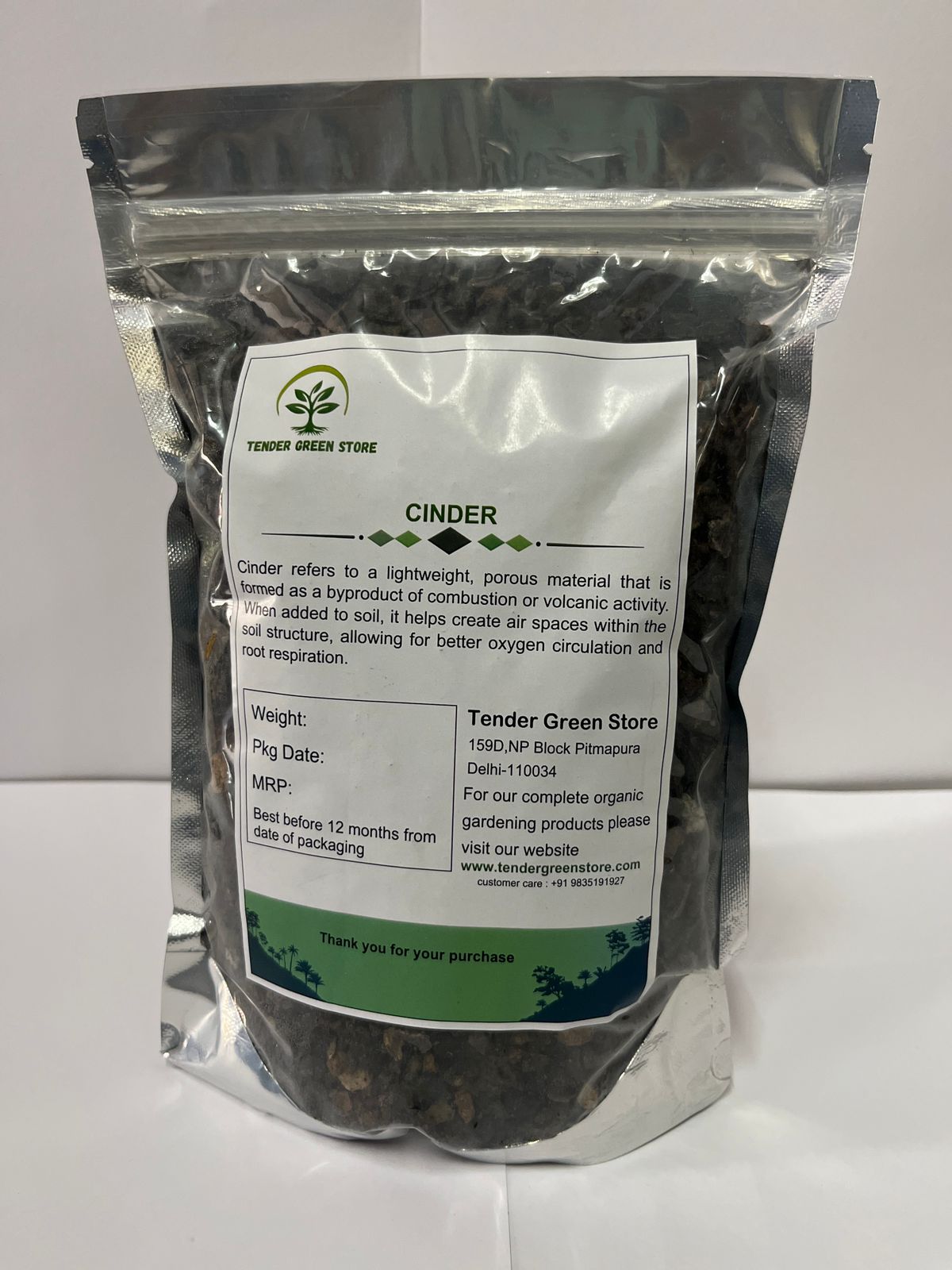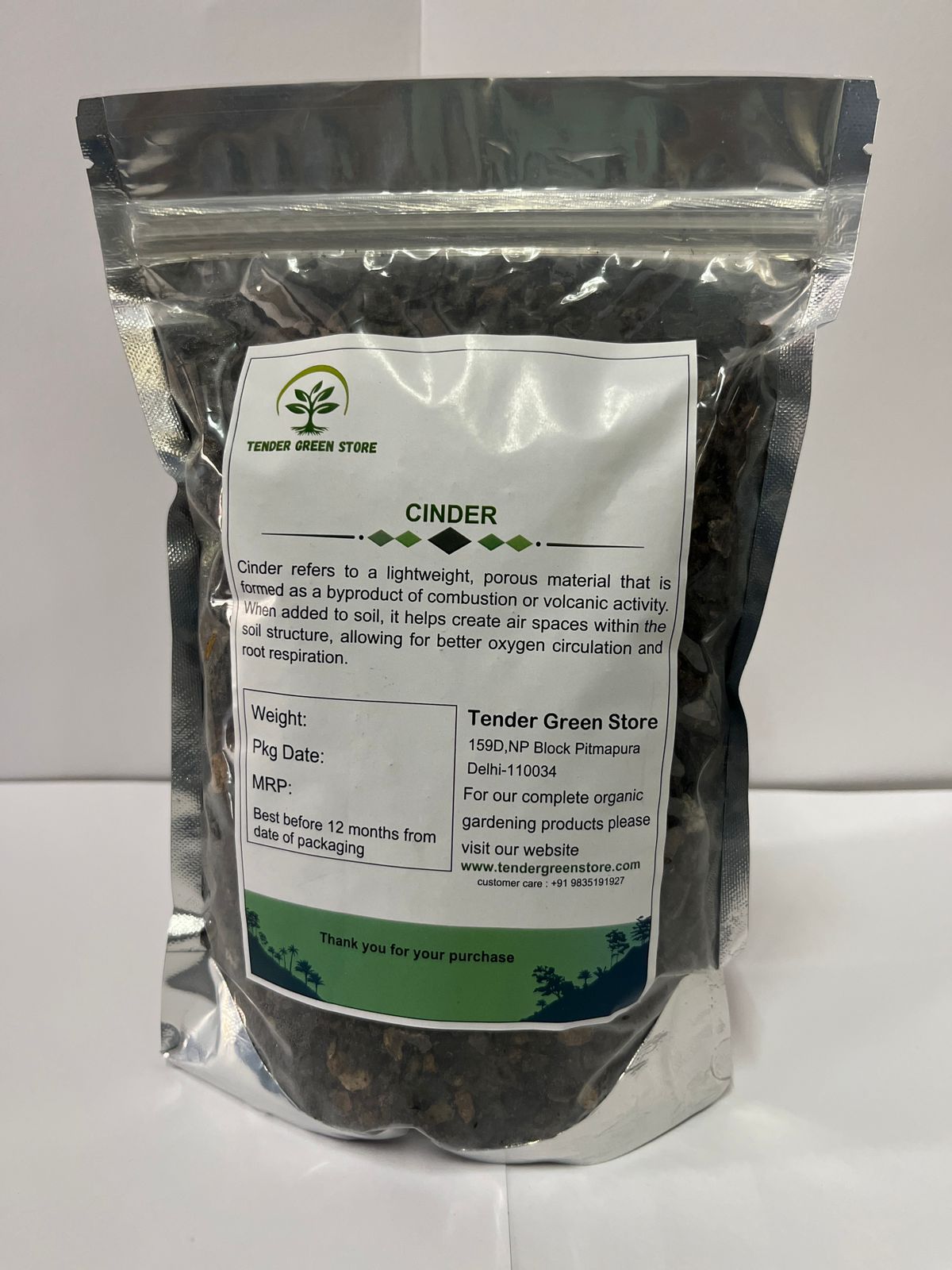Tender Green Store
Washed Cinder
Washed Cinder
Couldn't load pickup availability
Cinder, also known as volcanic rock or scoria, is a porous, lightweight material formed from volcanic eruptions. While not traditionally considered a soil amendment, cinder offers unique properties that make it a valuable addition to certain gardening and landscaping applications, particularly for improving drainage and aeration in soils.
Properties
- Porous Structure: Cinder is characterized by its porous structure, which allows for excellent water drainage and air circulation in soil.
- Lightweight: Compared to traditional soil amendments like sand or gravel, cinder is relatively lightweight, making it easy to handle and transport.
- Inert Composition: Cinder is chemically inert, meaning it does not significantly alter soil pH or nutrient levels, making it suitable for a wide range of plants and soil types.
- Heat Retention: Due to its volcanic origin, cinder has the ability to absorb and retain heat, which can be beneficial for extending the growing season in cooler climates.
Benefits
- Improved Drainage: The porous nature of cinder facilitates rapid drainage of excess water from soil, preventing waterlogging and promoting healthy root growth.
- Enhanced Aeration: By creating air pockets within the soil, cinder improves soil aeration, allowing oxygen to reach plant roots and supporting beneficial soil microorganisms.
- Reduced Compaction: Incorporating cinder into heavy or compacted soils helps loosen soil structure, reducing compaction and improving root penetration.
- Weed Suppression: A layer of cinder mulch can help suppress weed growth by creating a barrier that inhibits weed germination and establishment.
- Longevity: Unlike organic amendments that decompose over time, cinder is durable and long-lasting, providing lasting benefits to soil structure and drainage.
Usage
- Soil Amendment: Mix cinder into garden soil or planting beds to improve drainage and aeration, particularly in heavy clay soils or areas prone to waterlogging.
- Container Gardening: Use cinder as a component in potting mixes to enhance drainage and prevent root rot in container-grown plants.
- Mulching: Apply a layer of cinder as mulch around plants to improve soil structure, suppress weeds, and conserve soil moisture.
- Pathways and Walkways: Use cinder as a decorative and functional material for pathways and walkways in gardens and landscapes, providing excellent drainage and a stable walking surface.
Application Tips
- Blend with Soil: Mix cinder thoroughly with existing soil or potting mixes at a ratio of 1:1 or as needed, ensuring even distribution throughout the root zone.
- Layering: Apply a layer of cinder as mulch or top dressing around plants, avoiding direct contact with plant stems to prevent potential damage.
- Water Management: Monitor soil moisture levels closely when using cinder, as its excellent drainage properties may require more frequent watering, especially in hot and dry conditions.
- Safety Precautions: Wear gloves and protective eyewear when handling cinder to avoid skin irritation or injury from sharp edges.
Cinder offers a unique set of properties that can benefit soil structure, drainage, and aeration in various gardening and landscaping applications. By incorporating cinder into soil mixes, mulches, or pathways, gardeners can improve growing conditions for plants, reduce waterlogging, and create healthier and more resilient landscapes.
Share


